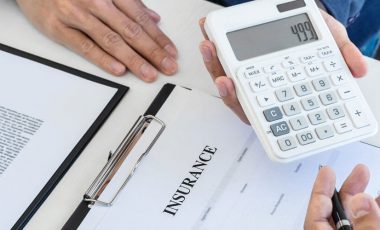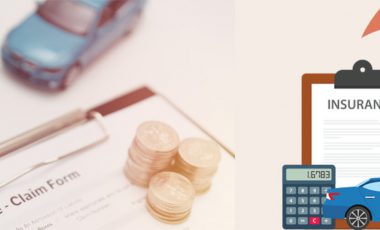Does Car Insurance Cover Damage if I Hit a Curb?
The majority of us have experienced curbing a tire while driving. We make poor judgments when turning, parking, or seeing curbs at the side of the road. Although it might not seem like much, running into a curb might be one of the worst things you can do to your wheels.
The collision may screw with the car’s suspension and lead to unanticipated mechanical issues in the future. Fortunately, damage caused by hitting a curb or pothole is occasionally insignificant, and the entire incident may be written off as an unfortunate occurrence. Even so, it may still be a problem.
So if you have questions like does car insurance cover curb damage? Then this blog is your go to guide.
What kind of damage can hitting a curb cause?
- While Driving, the Car Veers: It causes the car to swerve and make rattling noises when it makes turns. A serious collision might also damage the brakes, making it dangerous to drive while the steering wheel is trembling.
- Transmission Issues: In the worst case, you run the chance of colliding with one of these vehicles. If the case is assigned to you, you are forced to fix the OEM auto parts.
- Transmitter Issues: Notably, a high, angular curb frequently blows the oil pan, disconnects cooling cables and lines, and destroys axles and shafts.
- Exhaust Issues: The sharp edges of the curbs sever fuel lines, catalytic converters, and mufflers, which can result in a loss of gasoline and turn on the “check oil” dash lights.
What to do after hitting a curb?
Even if hitting a curb isn’t the most dangerous collision, you should nonetheless pause to assess the damage before continuing. You might not have been hurt if you weren’t moving very quickly or the curb wasn’t extremely high. If you were travelling swiftly, though, the damage may have been far more severe and expensive to fix.
- Take Pictures: Use your phone to snap pictures of the damage from as many different angles as you can after exiting the vehicle. If you wish to subsequently submit an insurance claim, you will require these.
- Check the damages: Your car’s interior and exterior can both be harmed when you hit a curb; it can also suffer damage to its suspension, tire, and other minor but crucial components. Depending on the extent of the damage, you could decide against driving your automobile home.
- Ask for assistance if required: This is a crucial factor to take into account if you suspect that the suspension may be compromised, as this can occasionally influence the steering of the vehicle. Before you can drive the automobile again, the alignment will probably need to be checked. Many auto insurance providers include emergency roadside assistance, which can in this case pay for the expense of a tow truck.
Does hitting a curb count as an accident?
Yes, hitting a curb will be considered an accident. And in most cases, it will be an at-fault accident. But the final decision depends on the circumstances and your insurance provider. As a result, it is advisable to ask your car insurance company directly.
The same question arises when we hit a wall. Does car insurance cover hitting a wall? Well, we have a separate blog for that as well. You can read everything about hitting a wall in the blog.
Which type of car insurance cover curb damage?
If you strike a curb, your collision insurance will pay for the damage. Any damage to your automobile that results from an accident is repaired by collision coverage. This may include colliding with another automobile, but it could also involve colliding with a curb or a signpost, or even with a person or an animal.
Collision insurance is optional and adds additional charges to your policy. It’s crucial to include collision coverage to your insurance since it offers priceless protection in the event of an accident. You can’t always rely on the other person being held accountable for an accident, even if you cause it together.
If you strike the curb and don’t have collision coverage, you’ll be responsible for any damages. In case you are wondering, does comprehensive cover hitting a curb? The answer is no. Comprehensive coverage will not cover your expenses in case of a collision. But if your question was: does full coverage cover hitting a curb? Then the answer is yes.
Will my insurance go up if I hit a curb?
In most cases, the rates will increase when you hit a curb because it will be considered an at-fault accident. After filing a vehicle insurance claim, your premium may be affected by a number of variables, including your driving history and whether you are judged to be at blame for the collision.
Here is a deeper look at some factors that your insurer could take into account once you submit a vehicle insurance claim.
The size and expense of the claim: Each claim is unique. For instance, there are differences between a small collision and an accident that results in a totaled automobile. When determining whether your insurance premium will go up or down, the cost and seriousness of a claim are important considerations.
Your record as a driver: When determining the cost of your auto insurance policy, auto insurers often take into account your driving record.
According to the Insurance Information Institute (III), drivers who are deemed to be at greater risk based on their driving record may be subject to a higher rate. Even if you’ve always been regarded as a safe driver, if new claims show that you’ve become a riskier driver, your insurer may reassess your driving history and opt to increase your rate. However, making a claim does not necessarily result in an increase in your insurance rate.
Another Important Read: Does car insurance cover pothole damage?
When to file a claim for damage for curb damage?
In the event that your automobile collides with a curb, determine the extent of the damage, your deductibles, any effects on your No-Claim Bonus (NCB), and your future rates before submitting a claim. Making an insurance claim may have consequences.
- No-Claim Bonus
- Cost of Subsequent Premiums
- Future problems to purchase insurance
Three things to think about before filing a car insurance claim for hitting a curb are:
- Deductibles: The majority of auto insurance contracts require the insured to pay a deductible out of pocket. Following a deduction of the deductible and depreciation, the insurance provider covers the cost of repairing the car.
- No-Claim Bonus: A no-claims bonus is a reduction in premium that is often granted by the insurance company to the insured at the end of a claim-free year. Even if there is just one claim, the NCB amount resets to zero.
- Insurance Claim made by a Third Party: Your automobile may occasionally sustain damage as a result of someone else’s negligence. If this is the case and you can demonstrate that the other party was at fault for the collision, you should make a third-party insurance claim against them.

We generated 12,100,000+ Quotes (...counting), Helping People to Save Money and Time.
Editorial Guidelines: The above is meant as general information to help you understand the different aspects of auto insurance. This information does not refer to any specific auto insurance policy. Coverages and other features vary between insurers, vary by state, and are not available in all states. References to costs of coverages/repair, average or typical premiums, amounts of losses, deductibles, etc., are indicative and may not apply to your situation. We encourage you to speak to our insurance representative and to read your policy contract to fully understand your coverages.
Featured Posts

Cheapest Car Insurance After a DUI: Discover Wallet-Friendly Options

Cheap Liability-Only Car Insurance for 2024: Complete Guide

